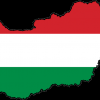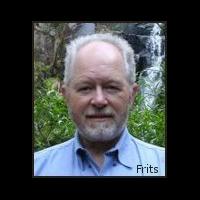Mesaĝoj: 3
Lingvo: English
Magyar (Montri la profilon) 2014-septembro-12 00:12:46
Hello all.
I am using a program named Kurso de Esperanto to study Esperanto. Each lesson has a practice exercise at the end, but does not check the answers. Does anyone mind checking my answers?
1. A healthy boy drinks warm milk.
Knabo sana trinkas lakton varman.
2. The old store doesn't sell dry cakes.
La butiko malnova ne vendas kukojn sekajn.
3 The teacher met the new friends.
La instruisto renkontis la amikojn novajn.
4. The new friends ill make a good cake.
La amikojn novajn faros kukon bonan.
5. The girl didn't find the sisters.
La knabino ne trvois la fratinojn.
6. The small sister is sick, the brother is healthy.
La fratino malgranda estas malsana, la frato estas sana.
7. The father will not wash the small cups.
La patro ne lavos la tasojn malgrandajn.
8. The beautiful bird caught a small insect.
La birdo bela kaptis insekton malgrandan.
9. The boy is my old friend.
La knabo estas mia amiko malnova.
10. The boys were great friends.
La knaboj estis amikoj grandaj.
Dankon.
I am using a program named Kurso de Esperanto to study Esperanto. Each lesson has a practice exercise at the end, but does not check the answers. Does anyone mind checking my answers?
1. A healthy boy drinks warm milk.
Knabo sana trinkas lakton varman.
2. The old store doesn't sell dry cakes.
La butiko malnova ne vendas kukojn sekajn.
3 The teacher met the new friends.
La instruisto renkontis la amikojn novajn.
4. The new friends ill make a good cake.
La amikojn novajn faros kukon bonan.
5. The girl didn't find the sisters.
La knabino ne trvois la fratinojn.
6. The small sister is sick, the brother is healthy.
La fratino malgranda estas malsana, la frato estas sana.
7. The father will not wash the small cups.
La patro ne lavos la tasojn malgrandajn.
8. The beautiful bird caught a small insect.
La birdo bela kaptis insekton malgrandan.
9. The boy is my old friend.
La knabo estas mia amiko malnova.
10. The boys were great friends.
La knaboj estis amikoj grandaj.
Dankon.
nornen (Montri la profilon) 2014-septembro-12 00:55:10
Everything sounds right to me. Maybe "great" could be "grandioza".
Small cups could be tasetoj.
A small insect could be insekteto.
Why do you put the adjectives after the nouns? This isn't wrong, but the most widely used word order is first adjective then noun. And generally when you deviate from it, you do so with some purpose (emphasis, topicalization) in mind.
Small cups could be tasetoj.
A small insect could be insekteto.
Why do you put the adjectives after the nouns? This isn't wrong, but the most widely used word order is first adjective then noun. And generally when you deviate from it, you do so with some purpose (emphasis, topicalization) in mind.
NoordZee (Montri la profilon) 2014-septembro-12 00:57:06
Magyar:Hello all.Hello,
I am using a program named Kurso de Esperanto to study Esperanto. Each lesson has a practice exercise at the end, but does not check the answers. Does anyone mind checking my answers?
1. A healthy boy drinks warm milk.
Knabo sana trinkas lakton varman.
2. The old store doesn't sell dry cakes.
La butiko malnova ne vendas kukojn sekajn.
3 The teacher met the new friends.
La instruisto renkontis la amikojn novajn.
4. The new friends ill make a good cake.
La amikojn novajn faros kukon bonan.
5. The girl didn't find the sisters.
La knabino ne trvois la fratinojn.
6. The small sister is sick, the brother is healthy.
La fratino malgranda estas malsana, la frato estas sana.
7. The father will not wash the small cups.
La patro ne lavos la tasojn malgrandajn.
8. The beautiful bird caught a small insect.
La birdo bela kaptis insekton malgrandan.
9. The boy is my old friend.
La knabo estas mia amiko malnova.
10. The boys were great friends.
La knaboj estis amikoj grandaj.
Dankon.
Here are the correct answers. They have been checked by a mentor. I hope that this will help you. Note where you placed the adjectives which I would expect in the French language.
1. A healthy boy drinks warm milk.
Sana knabo trinkas varman lakton.
2. The old store doesn't sell dry cakes.
La malnova butiko ne vendas sekajn kukojn.
3. The teacher met the new friends.
La instruisto renkontis la novajn amikojn.
4. The new friends will make a good cake.
La novaj amikoj faros bonan kukon.
5. The girl didn't find the sisters.
La knabino ne trovis la fratinojn.
6. The small sister is sick, the brother is healthy.
La malgranda fratino estas malsana, la frato estas sana.
7. The father will not wash the small cups.
La patro ne lavos la malgrandajn tasojn.
8. The beautiful bird caught a small insect.
La bela birdo kaptis malgrandan insekton.
9. The boy is my old friend.
La knabo estas mia malnova amiko.
10. The boys were great friends.
La knaboj estis grandaj amikoj.



